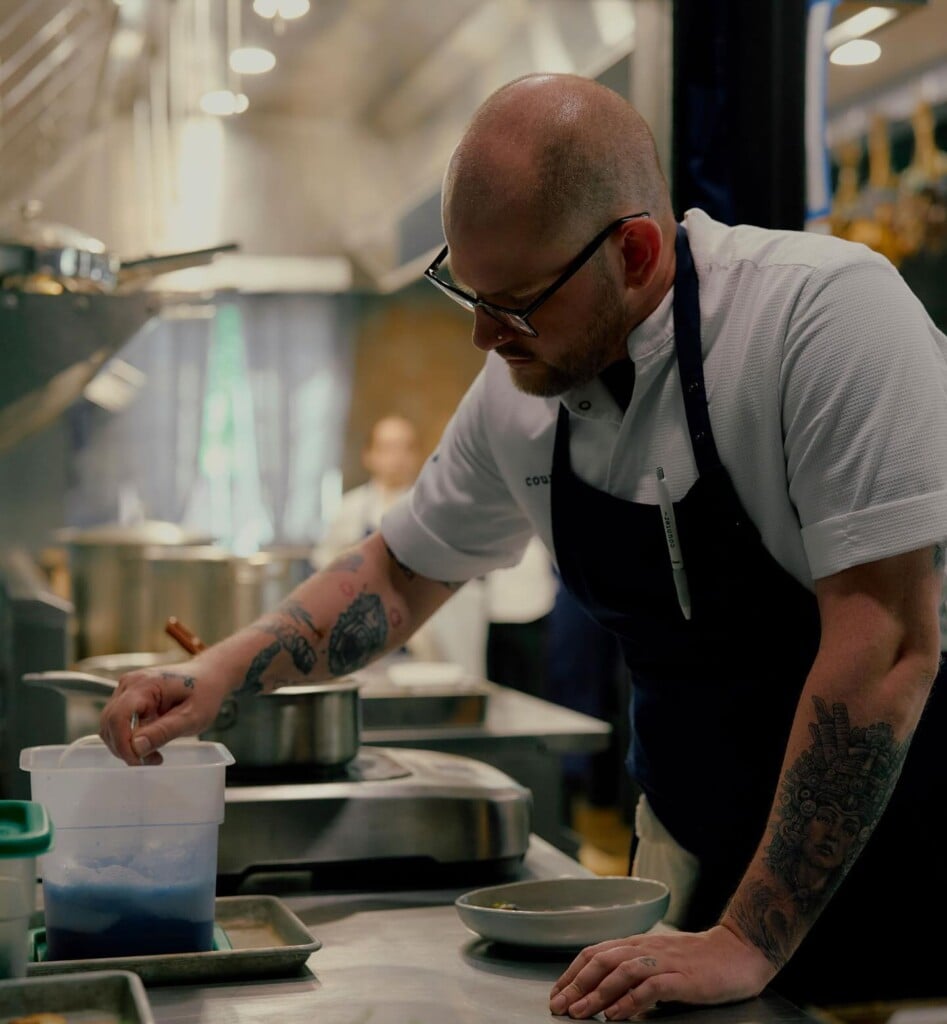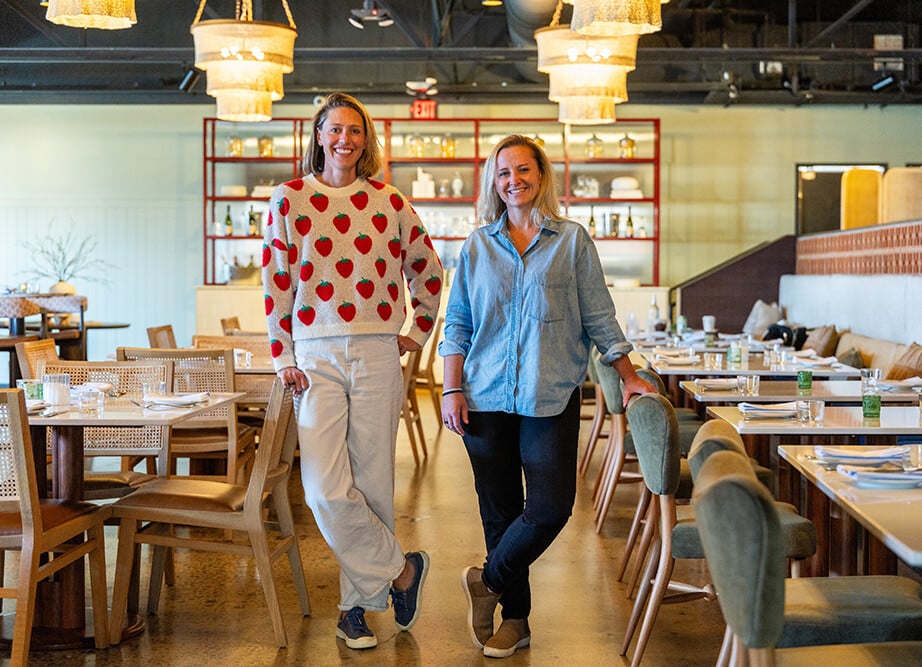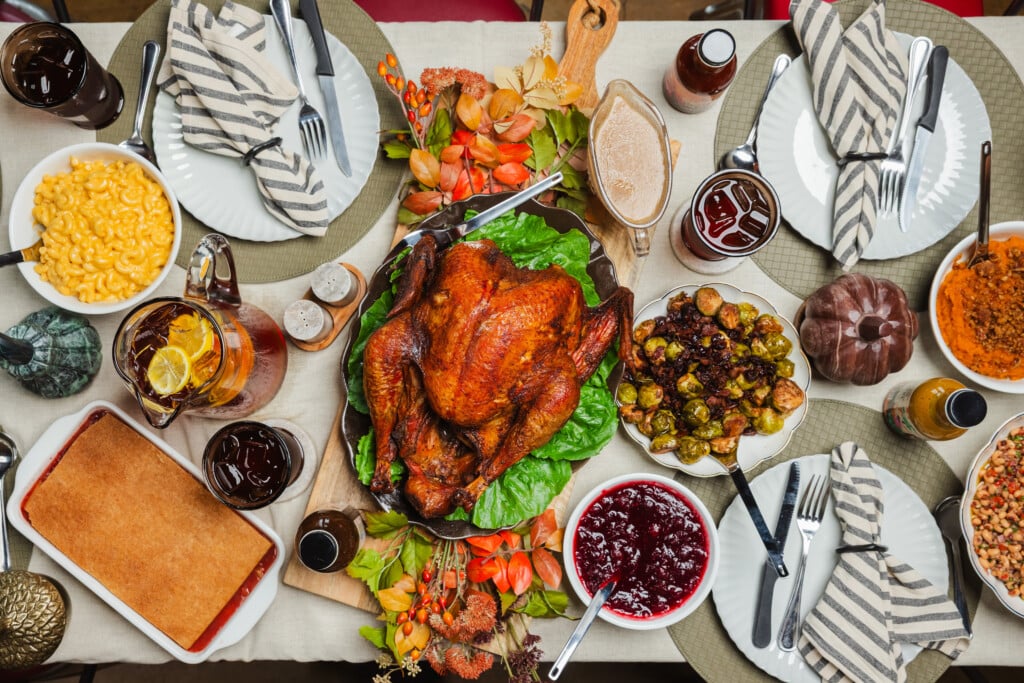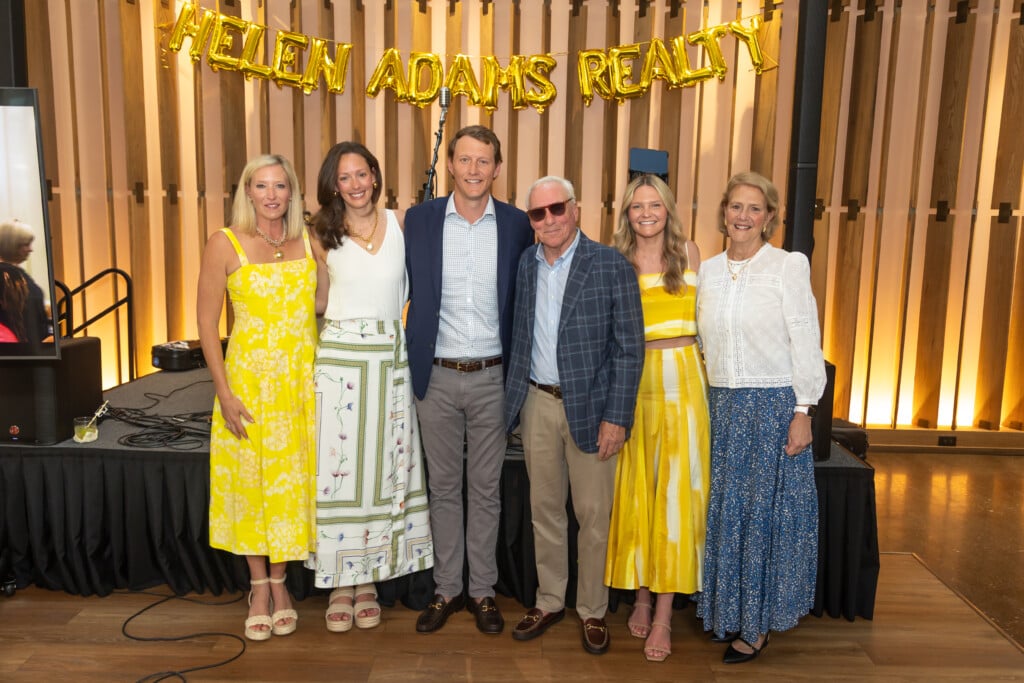From Charlotte To Shelby, Diners Are Eating With Strangers
After a season of isolation, restaurateurs in both country and city return to an old approach to dining
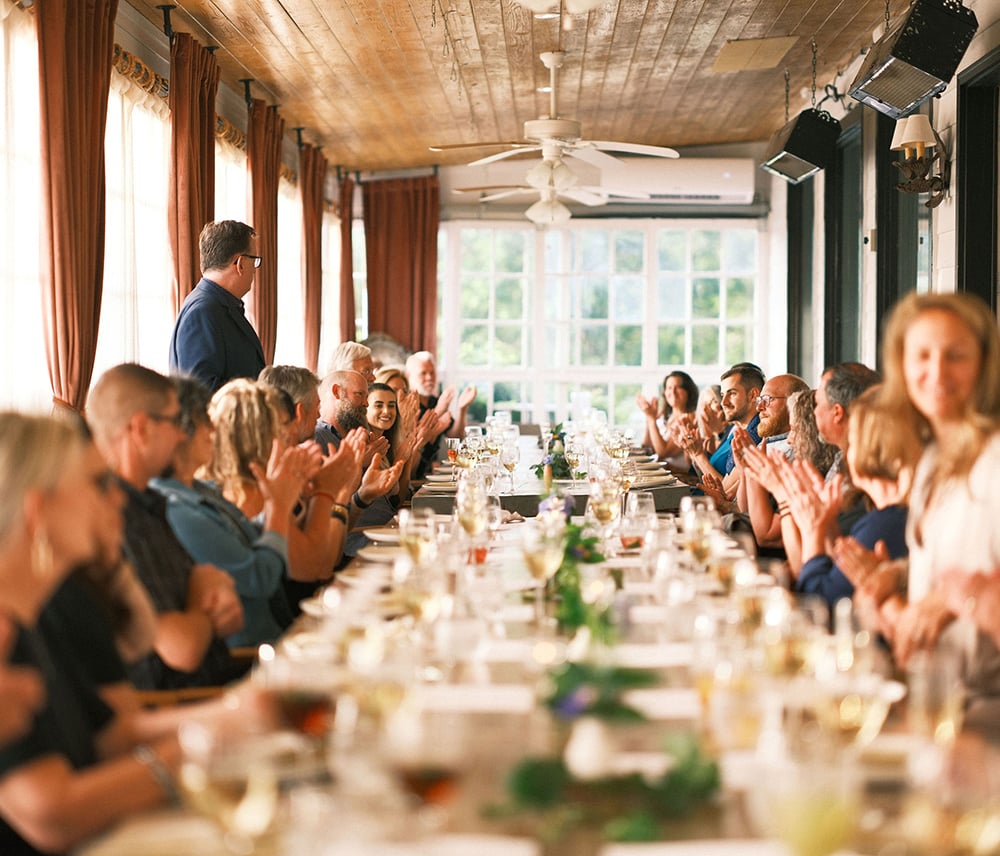
The hostess seats my boyfriend and me across from each other. Right next to us, at the same long, wooden table, another couple begins their dinner. We don’t know them. They don’t know us. Down the table are about 20 others. They sip white wine they’ve poured from bottles that rest in tableside buckets and nibble on smoked roe-topped trout and fingerling potatoes with anchovy dressing. They lean toward the table and each other, and the air fills with the hum of conversation.
We anticipated communal dining. But as we shuffle into our seats, shoulder to shoulder with strangers, it feels stiff. Soon, our plate of cheese arrives with a bottle of wine. I turn to my immediate right and a bespectacled woman in her 40s. “Hi, I’m Kayleigh,” I say. “Would you guys like to try some of our cheese?” She and her partner timidly decline at first. Then, with a quick “if you insist,” she slices off some Green Hill cow’s cheese.
Soon, we’re telling each other about ourselves: I’m a journalist, and my boyfriend is a sommelier; they’re UNC Chapel Hill professors who met on Hinge. Emily is a clinical psychologist; Matt is a professor in the nutrition department. I mention that I’m a UCLA graduate, and Matt geeks out over the coincidence: His graduate school mentor was one of my professors. We ping-pong conversations about his research in aging as our arms crisscross to sample each other’s plates, which include charred carrots and petite cabbages grown within 3 miles of the farm.
We’re at The Silo Cookhouse, the restaurant at The Horse Shoe Farm, a farm and resort in Hendersonville where the setting sun on this May evening gilds the fields. The Silo serves breakfast, lunch, and dinner at its two long tables. This isn’t some rare event. It’s the standard.
Here in the mountains and in cities like Charlotte, communal dining is beginning to trend. It’s in part a counterbalance to the isolation of dining during COVID. But for many restaurateurs, it’s more than that—it’s a platform for community connection and catalytic conversations, whenever people come to the table.
Matt and Emily leave The Silo before we do. But we exchange emails, and they promise to reach out for food recommendations when they visit Charlotte. Before we leave, my boyfriend and I—so unsure of the situation and ourselves three hours earlier—happily make our breakfast reservation for the next morning to do it all again.
Many restaurants that emphasize communal dining are, like The Silo, in rural resort areas. But they’re starting to bubble up in cities like Charlotte. Tasting Collective, a membership-based dining collective, hosts exclusive dinners at a different Charlotte restaurant each month, like Yunta Nikkei or Aqua e Vino. There’s a high demand for it, particularly from diners older than 40.
Beyond that, James Beard Foundation semifinalist Chayil Johnson of Community Matters Cafe and Supperland sous chef Brandon Staton host an annual pop-up dinner, History and Homage, that celebrates Black heritage. Their first dinner five years ago hosted fewer than 30 people. The most recent, in February, welcomed nearly 100.
Danielle Rubin, an entrepreneur, used to host dinners for her friends. They proved popular enough for her to launch a series of communal dinners, The Friday Table, in spring 2025. She says Charlotteans were eager for this type of experience—phones put away, diners passing plates, and guests showing up without knowing anyone else.

Entrepreneur Danielle Rubin launched The Friday Table series of communal dinners this spring. Courtesy, Corine Olarte VanderVoort
“Something about sharing the food really helps people pull down their walls,” Rubin says. “The long-table, family-style dinner was how I built my community. It’s how communities were built thousands of years ago.”
The experience needs to be as enriching for guests as hosts, Rubin says. So she does some pre-dinner curation, pre-assigning seats based on forms she has guests fill out beforehand. It asks them questions like: Are you a quiet observer? Are you a chit-chatter? What are you looking to get out of this experience? This style of intentional hosting is what Priya Parker, a gathering expert, would call “generous authority”—a gentle use of a host’s influence to make sure everyone gets something good out of the party. Johnson and Staton of History and Homage exercise it through clear guidelines and source material and by encouraging conversation that surrounds a pre-selected theme. Among their recent themes: influential Black chefs; Black foodways and traditions; Black literature; and Black supper clubs.
In History and Homage’s case, guests aren’t just left to eat and make small talk. They’re organized in groups of six to nine in designated seats and guided to talk about things that can, like our arms at The Silo, crisscross over distances and barriers. Johnson was inspired by an earlier event, Soul Food Sessions, that highlighted Black chefs and foodways.
“We didn’t feel like there were really any events going on that paid tribute to the history of African Americans’ impact on the culinary scene,” Johnson says, “especially in Charlotte.” He says he’s after an event that doesn’t just highlight dishes but “pushes people’s curiosity”: “Creating something where it feels like you have to talk about it, especially during these dinners, is really important.”
Not every restaurant or chef needs to jump on the communal trend, he says. But “if anyone has a story that needs to be told or they want to share … it’s really valuable to do it that way.”
At The Silo, owner Jordan Turchin uses communal dining to tell another kind of story, about the relationship between dining and nature. The farm provides luxury amid a more natural setting: trickling ponds, plunge pools, a crystal-lined spa, and emerald fields that have already turned the nervous system down a notch. The bucolic locale primes them for a shared meal.
“In a city … you’re still competing with something that we’ve built. It’s not necessarily who we are,” he says. “To be as close to the elements as possible, to be eating and dining that way, I think is really the open door.” Rachel Turchin, Jordan’s wife and the property’s co-owner, says she senses that people yearn for a sense of mystery, novel experiences, and unexpected connections: “When you lean into it, you never know the surprise and delight that you might find sitting next to you.”]
It’s a return to a way of life humans know in our bones, says The Silo’s executive chef, Brett Suess. Any hesitation to share a table with strangers is a product of social conditioning. “We just got away from it for so long, and now that we’re getting back to it, it’s just very natural,” he says. “People are social creatures.”

Keia Mastrianni and her husband, farmer Jamie Swofford, host the annual Fish Pickin’ at Old North Farm in Shelby. Folks come from all around to sit at communal tables on the grounds and eat fish dinners prepared by regional chefs.
It makes sense that communal dining experiences and events would fit a natural landscape, like at The Silo. But some owners and chefs can see this as part of restaurants’ regular operations. Johnson predicts the trend will soon show up on two ends of the dining spectrum: in high-end, tasting-menu restaurants and down-home, casual spots.
For the time being, you’re most likely to find long, shared tables at farms or farm-to-table style dinners. Nationally, Outstanding in the Field is a roving restaurant experience, with one long table, that pops up at farms for a four-course wine dinner at $385 a ticket. On Sept. 20, it’ll land at Wild Hope Farm in Chester, South Carolina, where Greg Collier will be the guest chef. To the west, another farm, Old North Farm in Shelby, hosts an unrelated community dinner: the annual Fish Pickin’, where regional chefs prepare stunning displays of fish, from curried to deep-fried, on long dining tables on the grounds. It’s an outdoor party with music and cocktails.
People text months in advance to mark their calendars, says Keia Mastrianni, the event’s co-host. They “find novelty in simply coming to the farm, taking the drive, and having space and fresh air alongside delicious food and great hospitality,” she says.
Whether at a farm or resort or in everyday restaurants, more and more diners appear to crave that novelty and connection. As the communal trend advances toward cities like Charlotte, it won’t only be something I and other city-dwellers will have to escape to. It’ll thrive right where we live.


